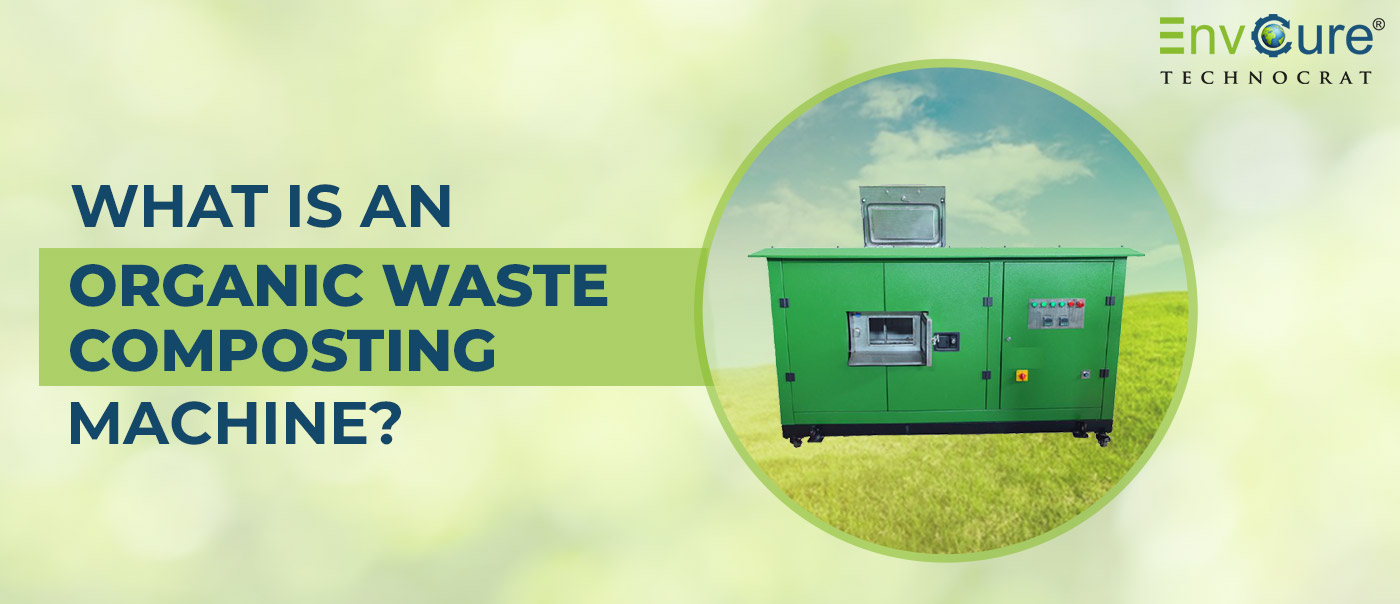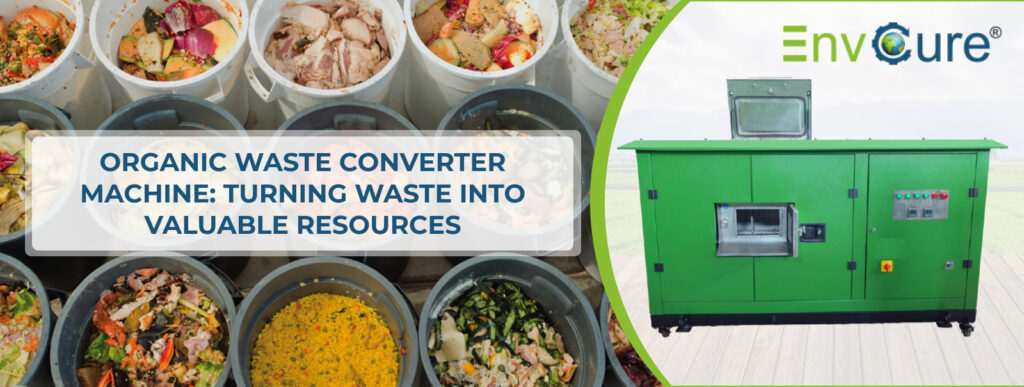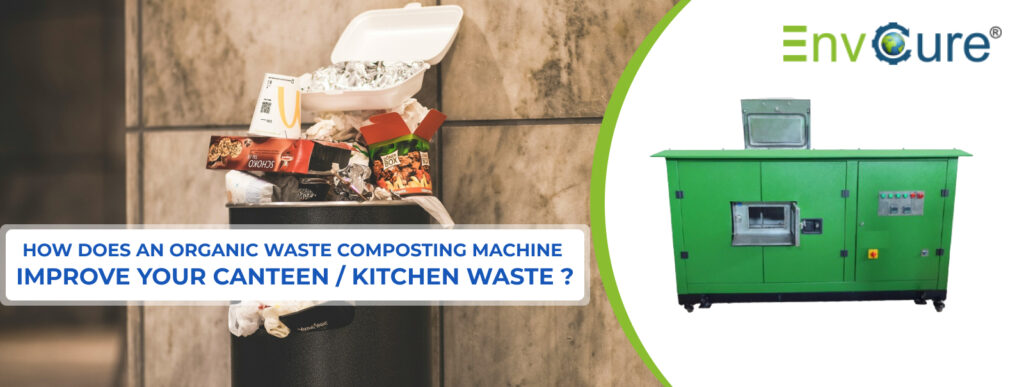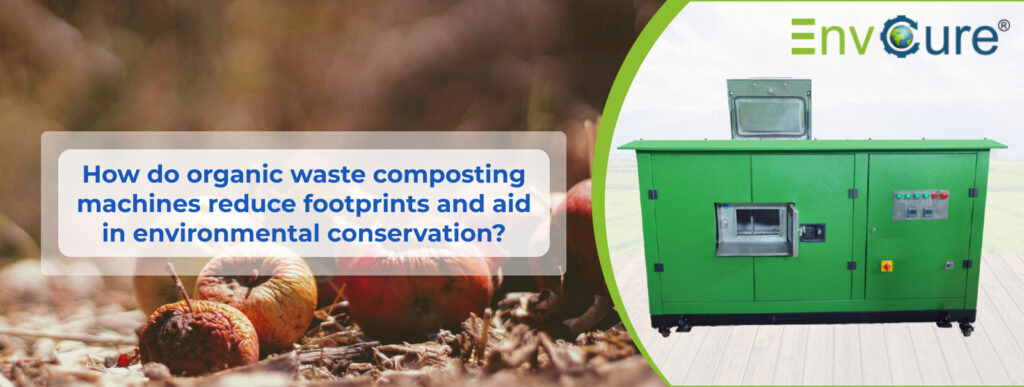Every day thousands of tons of waste are generated from the domestic and commercial sector, challenging waste management. Most of the waste, especially the ones generated from the kitchen segment, can be composted to be used as manure.
However, dumping the entire waste into landfills can be hazardous to the environment with significant methane gas emissions. Organic waste composting can be an effective solution to dispose of such huge chunks of waste.
What is Composting?
Composting is breaking the complex structure of waste into simple forms called compost which offers various benefits. For example, it improves soil health along with reducing greenhouse gas emissions.
What is an Organic Waste Composting Machine?
An organic waste composting machine is used to recycle all types of waste and convert it into compost that can be used in varied ways. These machines propagate organic waste management, and without them, the same process would take a long time.
The general process deals with piles of waste generating environmental pollution. The organic waste composting machine is designed to fasten the composting process and recycle maximum waste in the shortest time.
How Does it Work?
The working principle of the waste composting machine is straightforward. The raw material is first mixed with water to create a mix that can be used as input. This waste is then fed to the machine from the input section.
The device has a mechanism for adding microorganisms to the mix. Some holes supplement the mixture with air. There is a stirrings shaft that mixes the waste mix with microorganisms. For the next seven days, the temperature inside the machine rises to 50-60 degrees Celsius, killing the undesired pathogens and reducing the waste into harmless and valuable manure.
Once the composting is complete, the temperature variation stops, and the organic fertilizers can be collected from the discharge section.
Can Composting be Done Within a Day?
Technology has made everything possible. For example, it is possible to compost the waste in one day with advanced composting machines. These machines are fitted with mixers and shredders to break down the trash faster.
In addition, some of the devices are equipped with PLC control systems and solar dehydration systems to fasten the composting process. Besides fast conversion, the machines also vary in handling the waste.
Why Should You Use An Organic Waste Composting Machine?
An organic composting machine is an advanced and cost-effective way of waste management. Most waste items, especially edible products, can be recycled into something useful. Primarily, using a composting machine saves time and manpower in converting waste into manure.
These organic fertilizers are in the purest form and can be used for raising healthy crops. In addition, it saves waste handling and transportation, required in a land filing with waste. The environmental benefits are something to count on.
Along with reduced methane production, they benefit the soil. Organic fertilizers supplement the soil with nutrition which can be used in plantations. When added to the soil, the compost keeps a check on soil erosion and water retention. An organic waste machine is an all-round solution to a greener and sustainable future.
The organic waste composting machine is a handy device used in many sectors, including hospitality, education, and food. With technological advancements, more advanced faster-composting machines are making their way into the market.
Envcure is the leading organic waste composting machine manufacturer that provides machines with world-class quality. We have easy-to-use organic waste converter machines for home and commercial use. We use international quality standards to manufacture our machines. Contact us to get a compost machine at the best market rates.
Related Products
- Automatic Green Foody Composter
- Fully-Automatic Organic Waste to Compost Machine
- Green Foody Compost
Frequently Asked Questions:
Q1. Where Does Organic Waste Come From?
A. Organic waste, or biodegradable waste, is a natural refuse type that comes from plants or animals. It comes in manifold forms – biodegradable plastics, food waste, green waste, paper waste, manure, human waste, sewage, and slaughterhouse waste.
Q2. How is Organic Waste Converted into Compost?
A. The method of composting is started by shredding the plant matter, then adding water, and ensuring proper aeration by regularly turning the mixture when open piles are used. In this process, the waste must be appropriately broken down, and fungi, earthworms, and other detritivores help in breaking down the materials.
Q3. Is Kitchen Waste Biodegradable?
A. Biodegradable waste includes leftover food, fruit and vegetable peelings, soft shells, seeds, leaves, flowers, twigs, branches, stems as well as entrails of fish, fowl and other animals, noted NSWMC.








